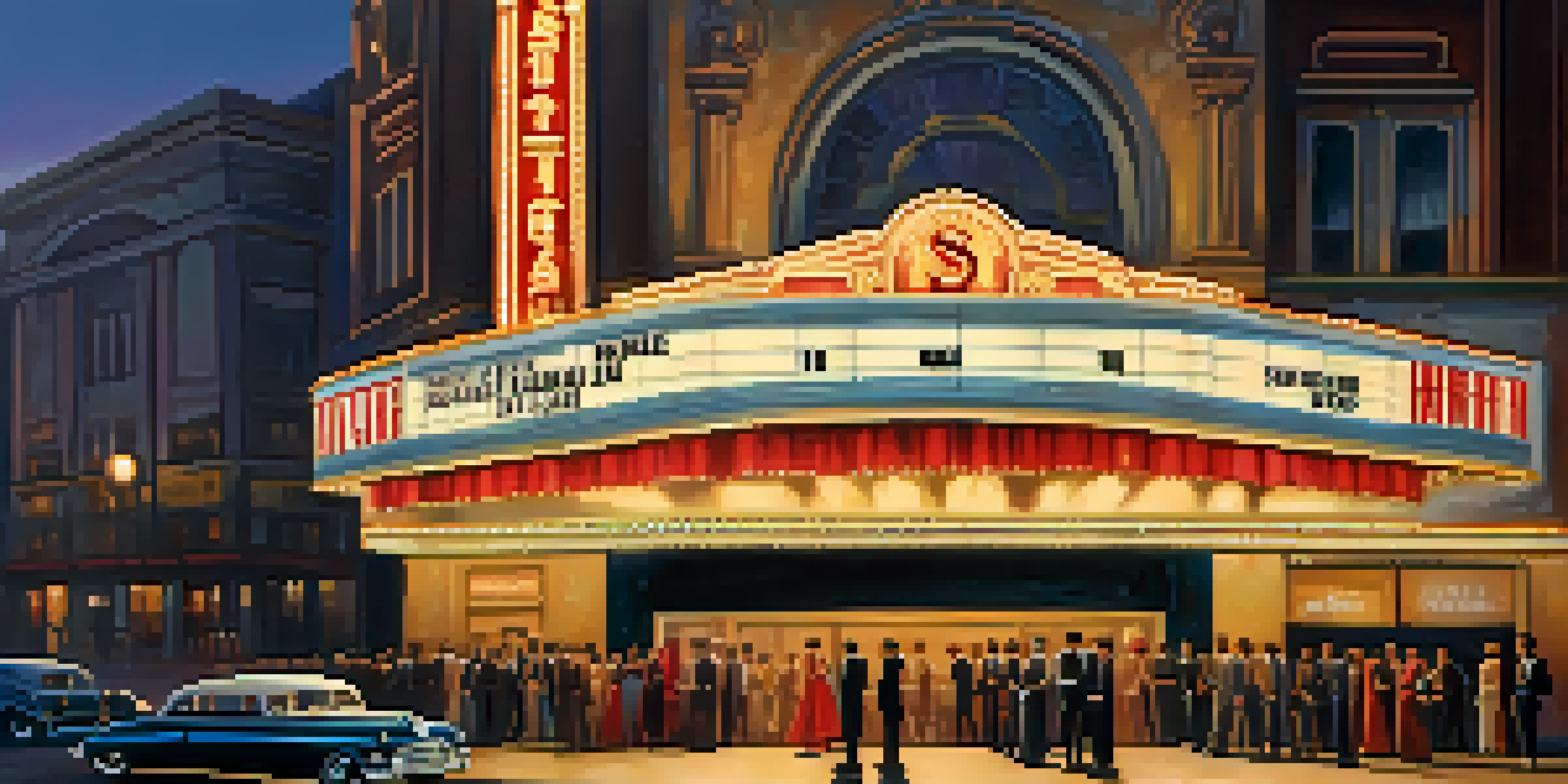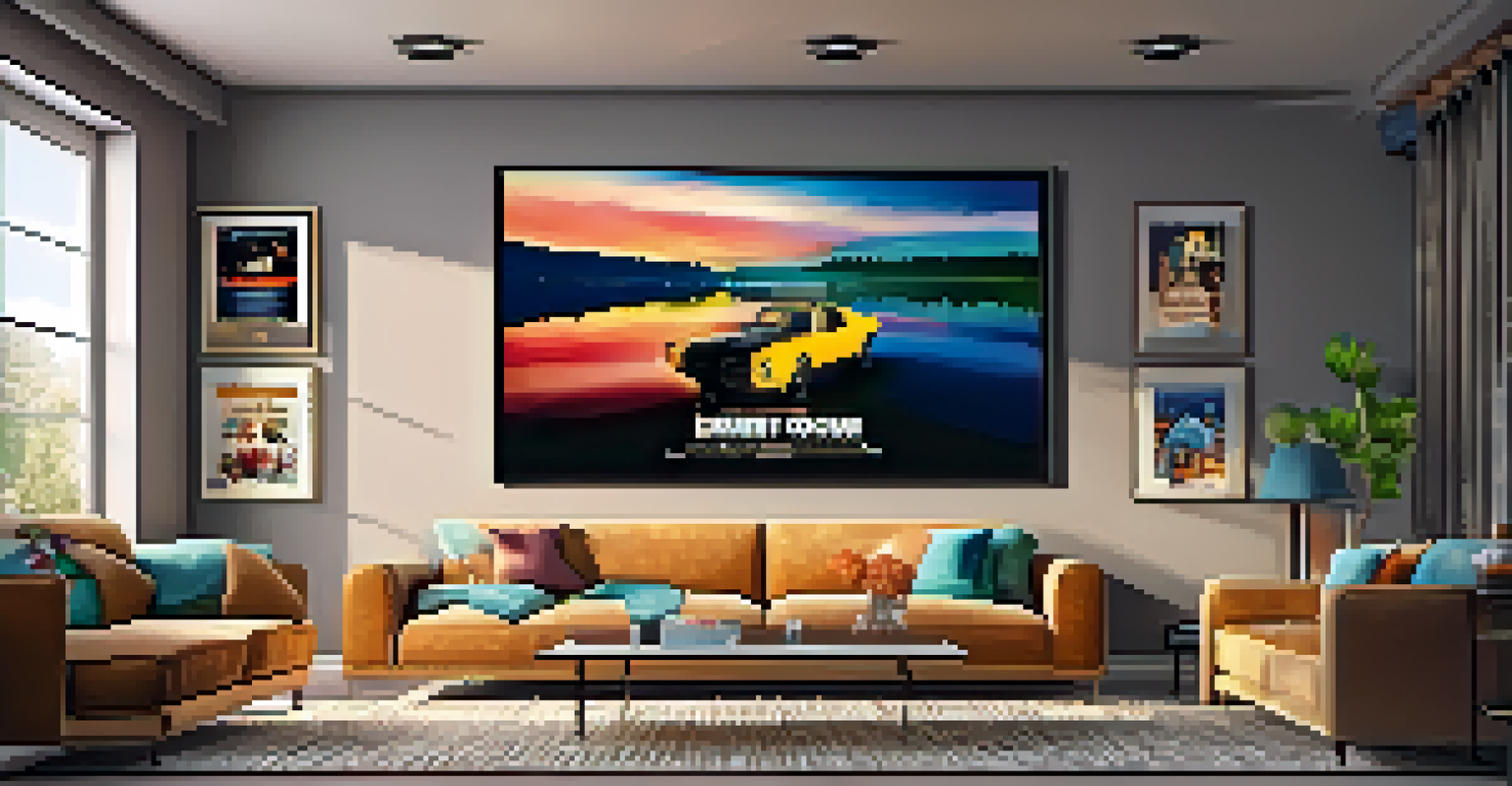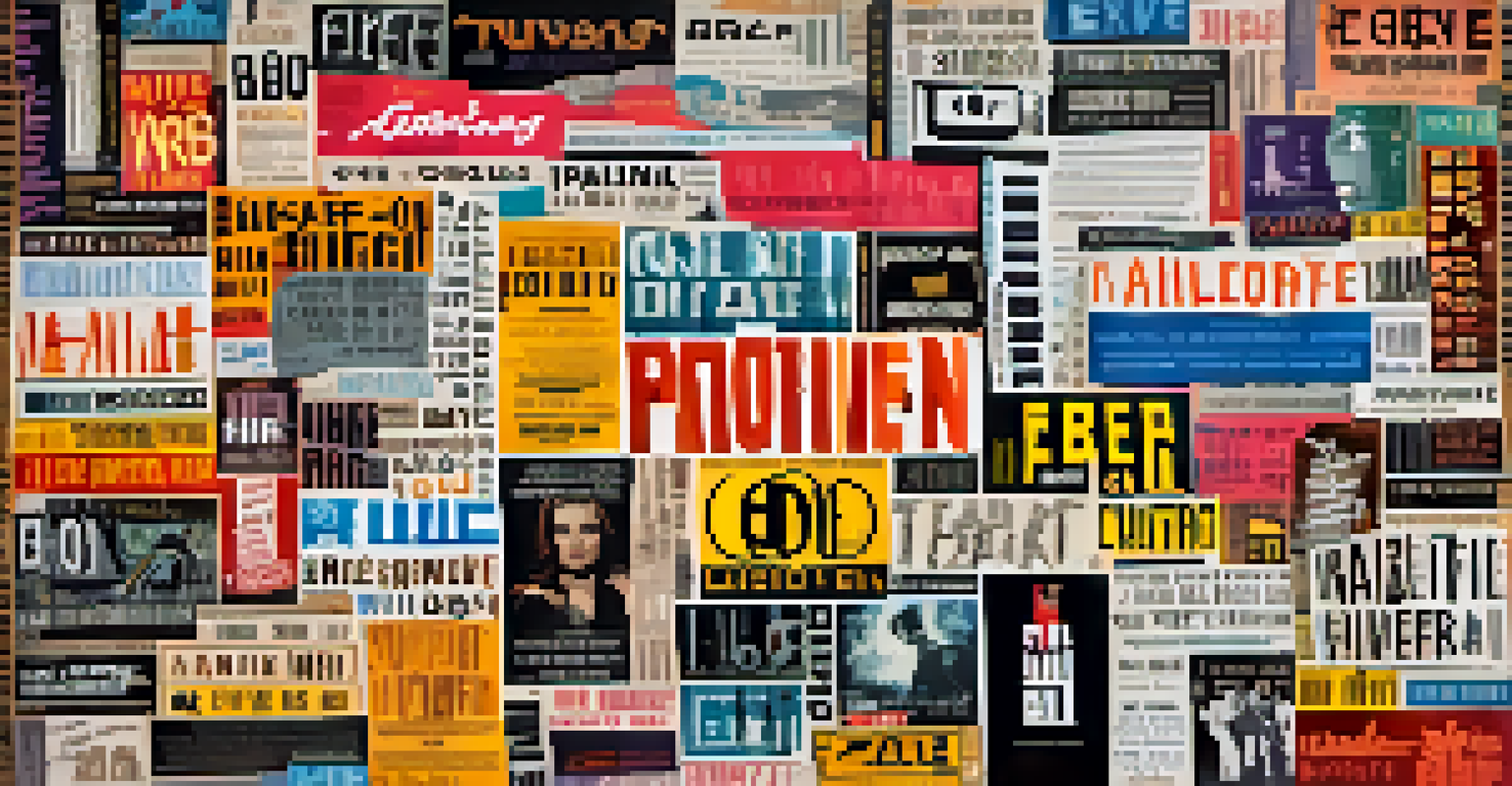From Script to Screen: The Evolution of Movie Quotes

The Power of Quotes in Film: A Brief Overview
Movie quotes have a unique power to resonate with audiences, often encapsulating the essence of a film in just a few words. These lines can evoke laughter, tears, or provoke deep thought, making them memorable long after the credits roll. From classic lines like 'Here's looking at you, kid' to modern gems, quotes help define characters and narratives.
A film is never really good unless the camera is an eye in the head of a poet.
When we think of iconic movies, certain phrases instantly come to mind. These quotes often transcend the films they originate from, becoming part of popular culture and everyday conversation. They can even influence our language, showcasing how cinema shapes communication.
Understanding the role of quotes in film history reveals their evolution over time. As storytelling techniques have changed, so have the ways in which these memorable lines are crafted, reflecting societal shifts and audience expectations.
Classic Quotes: The Golden Age of Cinema
The Golden Age of Hollywood produced some of the most unforgettable quotes in film history. Lines from movies like 'Gone with the Wind' and 'Casablanca' remain ingrained in our cultural memory. These quotes often reflect the dramatic storytelling and eloquent dialogue characteristic of that era.

During this period, filmmakers focused heavily on character development and emotional depth, leading to quotes that were both poignant and reflective. For example, 'Frankly, my dear, I don't give a damn' not only defines Rhett Butler but also encapsulates the film's themes of love and loss.
Quotes Shape Cultural Conversations
Movie quotes transcend their films, becoming integral to popular culture and influencing everyday language.
As audiences embraced these films, the quotes became synonymous with the characters themselves, creating an enduring legacy. This deep connection between quotes and character identity set a precedent for future film dialogues.
The Rise of Catchphrases in the 1980s and 90s
The 1980s and 90s saw the emergence of catchphrases that captured the zeitgeist of the era. Movies like 'The Terminator' introduced lines such as 'I'll be back,' which became cultural touchstones. These quotes often conveyed a sense of action and adventure, appealing to a new generation of moviegoers.
The cinema is a matter of what's in the frame and what's out.
Catchphrases provided a way for characters to become larger than life, allowing audiences to connect through humor and memorable one-liners. Think of iconic moments like 'You can't handle the truth!' from 'A Few Good Men'—it’s not just a quote; it’s a cultural declaration.
As society shifted, so too did the style of quotable lines. The blend of humor, drama, and action in these films produced lines that were easily repeatable, embedding them into the fabric of everyday language.
The Impact of Technology on Movie Quotes
Advancements in technology have dramatically changed how films are made and experienced, influencing the nature of movie quotes. With the rise of streaming services and social media, quotes can spread rapidly and become memes almost overnight. This phenomenon allows for a new kind of engagement with film dialogues.
Digital platforms have made it easier for audiences to share and discuss their favorite quotes, driving trends and creating a shared cultural lexicon. A line from a recent blockbuster can be trending on Twitter before the film even leaves theaters, showcasing the power of instant connectivity.
Diversity Enriches Film Dialogue
The inclusion of diverse voices in film leads to impactful quotes that resonate with a broader audience.
This evolution highlights how technology not only alters the creation of quotes but also their longevity and reach. As new generations discover classic films, they often recontextualize quotes, giving them fresh meanings in today’s world.
Diversity in Quotes: New Voices and Perspectives
The film industry has begun embracing more diverse voices, leading to a richer tapestry of quotes that reflect different cultures and experiences. As stories from underrepresented communities gain traction, audiences encounter fresh perspectives that resonate on various levels. This shift is vital for connecting with a global audience.
Films like 'Black Panther' and 'Crazy Rich Asians' showcase how quotes from diverse characters can change the landscape of movie dialogues. Phrases like 'Wakanda forever' not only serve as rallying cries but also symbolize cultural pride and representation.
This increased diversity in scripting allows for more relatable and impactful quotes that speak to a wider audience. By amplifying different voices, the film industry enriches its narrative and ensures that more people find their stories represented on screen.
The Role of Quotes in Branding and Marketing
Movie quotes have become powerful tools in branding and marketing strategies. Catchy phrases from films often get used in advertisements, creating a lasting impression and drawing audiences in. Think of how 'May the Force be with you' has transcended 'Star Wars' and become synonymous with resilience and hope.
Brands leverage these quotes to create emotional connections with consumers, tapping into the nostalgia associated with beloved films. This strategy is particularly effective during product launches or promotional events, where a familiar quote can evoke powerful memories.
Tech Transforms Quote Longevity
Advancements in technology allow movie quotes to spread rapidly, creating a shared cultural lexicon through social media.
Moreover, quotes help films maintain their presence in pop culture long after their release. By embedding memorable lines into marketing campaigns, companies ensure that these quotes continue to resonate, keeping the film's legacy alive.
Future Trends: What’s Next for Movie Quotes?
As we look to the future, the evolution of movie quotes is likely to continue alongside changes in film technology and audience expectations. With the rise of interactive storytelling, we may see quotes that adapt based on viewer choices, creating personalized cinema experiences. This innovation could redefine what it means to have a memorable quote.
Additionally, the ongoing push for inclusivity in storytelling will likely lead to even more diverse and impactful quotes. As filmmakers explore new narratives, we can expect to see lines that challenge conventions and reflect a broader range of human experiences.

Ultimately, the future of movie quotes is bright and filled with possibilities. As long as films continue to inspire and connect us, we will always have lines that resonate, provoke thought, and bring us together.